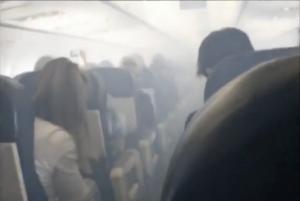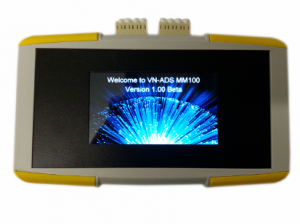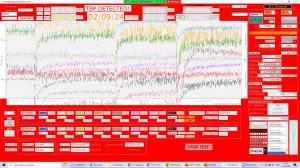Cabin Air Sensor Solutions 'CASS' is inviting airlines to participate in their 2023 Global In-Flight Aircraft Cabin Air Audit.
Airlines have clearly woken-up to the opportunity that this solution presents them to demonstrate to their pilots and cabin-crew that the most valuable assets in the company are their staff”
LONDON, ENGLAND, July 11, 2022 /EINPresswire.com/ -- Cabin Air Sensor Solutions, CASS, formerly VN-ADS the company that created the world’s first poisonous compound sensor for aircraft, is inviting airlines to participate in their Global In-Flight Aircraft Cabin Air Quality Audit.— Mark Gilmore
CASS will use its latest sensors to monitor and report on quality of air across airline fleets during flights, as well as providing pre & post flight aircraft cabin inspections.
The purpose of the audit is twofold:
1. Deploy & test prior to mass manufacture
2. Prove or disprove in real-time, the presence of organophosphates in aircraft cabins.
Several airlines have signed NDAs with CASS, and detailed discussions are progressing to move to in-flight testing. Operations Director Mark Gilmore said, “I am encouraged by the level of interest from Airlines, Operators and Pilots alike in working with us on this phenomenal project. He went on to say, “Partner Airlines have stated that they intend to use all sensor information gathered during the trials to strengthen their position when taking aircraft manufacturers to task if there is evidence of poisonous compounds entering via the ‘bleed air’ system to the aircraft cabin air" .
Cabin Air Sensor Solutions is also being approached by pilots, cabin crew and passengers who are concerned about health and safety in their place of work or whilst travelling for business. Many want to use the sensors to understand if the quality of the air they are breathing while they are working or travelling is safe, and not contaminated. As the sensor can detect organophosphates, and other poisonous compounds in real-time, using it as a personal safety device for all frequent flyers makes perfect sense and CASS are working on a personal version for sale to the public.
Tom Benzie, CASS Aviation Director said, “It is vital that we understand whether contaminants are entering the aircraft cabin, and that we can identify what they are, and the concentrations thereof. If nothing is coming in, and we can prove it, then that would be fantastic. If there is contamination, and we can identify the components (and concentrations) then we can start mitigation to safeguard cabin crew, flight crew and passengers. There is a severe lack of understanding in this area, and we are helping to improve that"
David Newman, Commercial Director at CASS said, “When airlines finally understand that we are working with, rather than against them, the opportunity for CASS will prove to be absolutely enormous.” He went on to say, “There are an estimated 24,000 aircraft flying today with an average cost value of $261.66m (see https://www.statista.com/statistics/273941/prices-of-boeing-aircraft-by-type/) and the projected growth by both Boeing & Airbus shows an increase in that number to 39,000 over the next 20-years. Given the number of sensors required to service them, a multi-billion $ company valuation is more reality than pipe-dream!”
CASS is in discussions with various funding partners to deliver the business plan but has yet to find the right one. David Newman said, “We are still looking for the right fit partner-wise and would primarily welcome engagement with companies that have ready access to the aviation after sales & service marketplace and seek to dominate it. With the solution and industry-traction we have today, CASS is set not only to make huge headline revenues but also transform cabin air safety for the benefit of everyone concerned whilst doing so.”
David Newman
Cabin Air Sensor Solutions
+44 20 7993 5307
email us here




